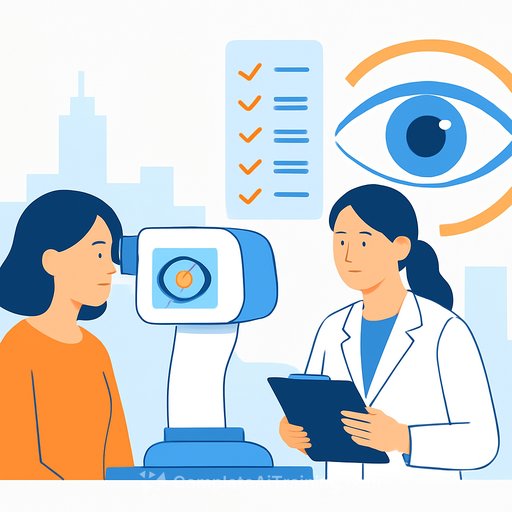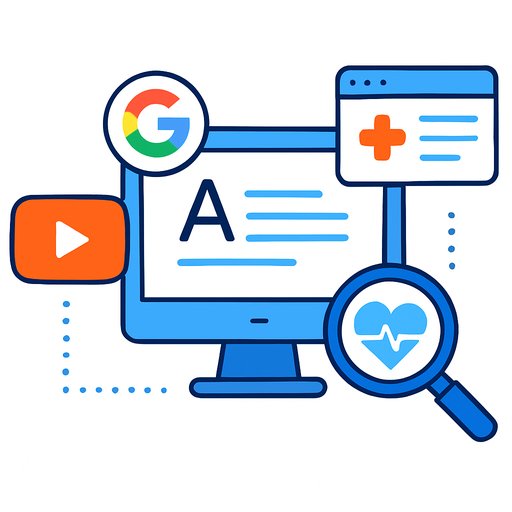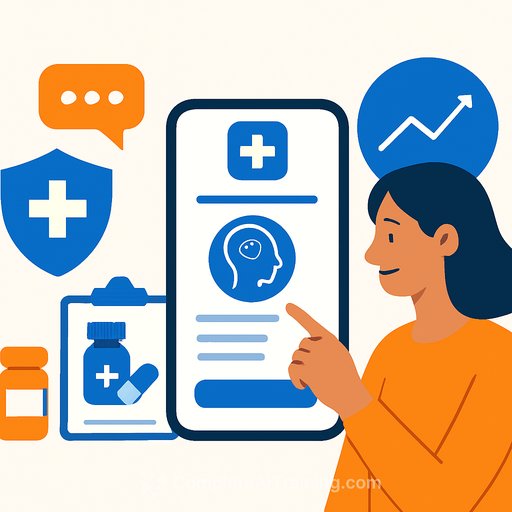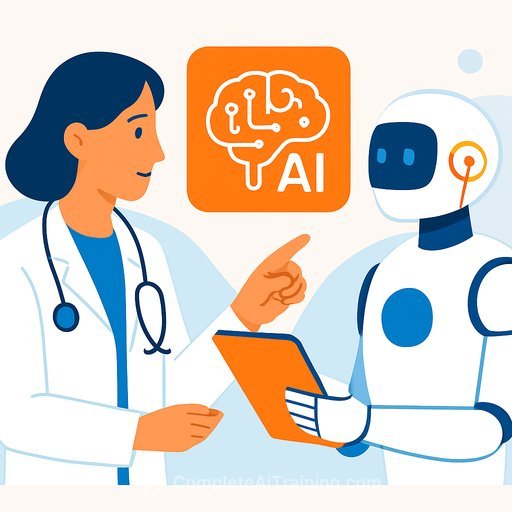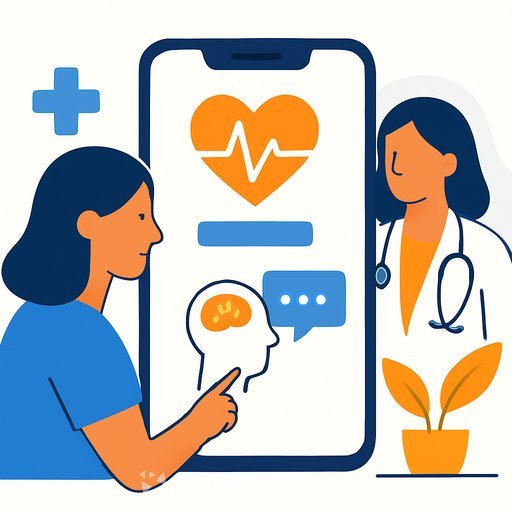AI-driven preventive healthcare gains momentum in Hong Kong
Hong Kong's push for preventive healthcare just moved from policy to practice. Cyberport, eHealth Consortium, and LIVE4WELL co-hosted an "AI-driven Preventive Healthcare Launch Event," bringing together policymakers, clinicians, and health-tech leaders to showcase practical AI tools that can reduce chronic disease burden and lighten system pressure.
The theme was clear: give citizens simple, daily ways to manage risk-supported by AI, data, and primary care. With an ageing population and rising chronic conditions, this is less a trend and more a necessary shift in service delivery.
Why this matters for healthcare leaders
- Prevention is moving center stage in Hong Kong's health strategy, with primary care and District Health Centres acting as anchors.
- AI can help scale risk detection, triage, and ongoing monitoring without adding workload to already stretched teams.
- Market signals are strong: investors and the public both favor AI-led, data-driven wellness solutions.
What was showcased on-site
- 30-second AI retinal imaging: screens for up to 55 risk factors, including diabetes and cardiovascular disease indicators.
- Body composition analysis: 17 indicators, covering visceral fat, muscle distribution, and metabolic age.
- 3D postural scanning: 360-degree scan in about a minute, flagging 15 posture issues.
- AI fitness test: motion capture with real-time analysis to score functional fitness.
Key voices from the event
Ir. Eric Chan (Cyberport) emphasized that AI and data can push healthcare from treatment-heavy to prevention-first, dovetailing with Hong Kong's primary care strategy and community-based support.
Dr. Charleston Sin (eHealth Consortium) highlighted the timing: electronic health records and new therapies are maturing, and citizens are increasingly willing to manage and use their own health data.
LIVE4WELL's co-founder, Ms. Miranda Wong, described an AI wellness ecosystem aiming to turn large health datasets into personalized, daily actions that help people spot risks early and act on them.
Prof. Hong Fung (CUHK) noted the growing field of FDA-cleared AI-enabled devices and decision support tools, suggesting practical roles for personalized risk assessment, early detection, and chronic care monitoring.
Dr. Gary Lau (HKU Med) discussed stroke care: AI can move care upstream-continuous monitoring, individualized plans, and earlier interventions that reduce adverse events.
The data point you should note
Deloitte's survey of 1,004 Hong Kong residents found 77% expect technology to play a larger role in wellness. Interest was highest in personalized nutrition (42%), AI fitness coaching (41%), and mental health technology (37%).
Translation: citizens are ready for personalized, AI-driven health management platforms-so long as they deliver clear value and actionable guidance.
Implementation checklist for clinics and health systems
- Define outcomes: Set targets for risk reduction (e.g., HbA1c control, ASCVD risk, BP control, fall risk) and tie them to service workflows.
- Select proven use cases: Prefer validated tools, ideally with regulatory clearance. See the FDA's list of AI/ML-enabled devices for reference. FDA AIML-enabled medical devices
- Plan data governance: Consent models, data minimization, retention, HK's PDPO compliance, audit trails, and clear patient rights.
- Integrate with records: Use standards (e.g., HL7 FHIR, SNOMED CT, LOINC) and plan simple flows into existing EMR/eHR to avoid double documentation.
- Validate locally: Run pilots with sensitivity/specificity reporting, subgroup analysis, and clinician review. Track unintended consequences and equity impacts.
- Design workflows: Nurse-led screening, automated triage, clear escalation pathways, and task-shifting to free clinician time.
- Close the loop: Convert each risk flag into an action plan-labs, referrals, education, or digital follow-up-so patients know what to do next.
- Measure ROI: Screen-positive yield, time-to-intervention, control rates, admissions/readmissions, patient adherence, staff time saved, and per-patient cost.
- Manage risk: Calibrate thresholds to your population, set human oversight points, and document clinical responsibility at each step.
- Secure procurement: Vendor due diligence (security, uptime, support), sandbox testing, and clear service-level agreements.
Policy context in Hong Kong
The Government is reinforcing primary healthcare and community-based services, with emphasis on earlier intervention and self-health management supported by digital tools. Events like this show how AI can sit inside that framework: fast screening, continuous monitoring, and data-informed care plans that scale.
Event snapshot
- Guests of honor: Hon. Mr. Duncan Chiu (LegCo, Technology & Innovation) and Ms. Joyce Cheung, JP (Assistant Head, Chief Executive's Policy Unit).
- Co-organizers: Cyberport, eHealth Consortium, LIVE4WELL.
- Speakers included: Ir. Eric Chan (Cyberport), Dr. Charleston Sin (eHealth Consortium), Ms. Miranda Wong (LIVE4WELL), Prof. Hong Fung (CUHK), and Dr. Gary Lau (HKU Med).
About the organizers
Cyberport is Hong Kong's digital tech hub and AI accelerator, home to 2,300+ companies, with programs that support R&D, sandboxes, and cross-sector adoption across finance, healthcare, education, logistics, and more. It operates large-scale AI infrastructure and supports AI and data science startups.
eHealth Consortium is a non-profit driving digital health across Hong Kong and Mainland China. It focuses on data standards, education, and pilot programs, and convenes regional eHealth conferences.
LIVE4WELL runs a health technology platform combining AI motion capture, dynamic assessments, personalized health plans, and 24/7 monitoring. Its "VIV PASS" sets baselines and recommends exercise prescriptions. A reward system (Sweat Points and WELLshop) turns healthy actions into tangible benefits.
What to watch next
- Clinical validation of AI screening tools in local populations and real-world settings.
- Integration with primary care workflows and reimbursement models that reward prevention.
- Mental health tools and home-based monitoring that extend care beyond clinic walls.
- Data standards and interoperability that reduce admin load and improve continuity of care.
If your team is building AI capability for healthcare workflows and wants structured upskilling, explore this curated catalog by role: AI courses by job
Your membership also unlocks:

